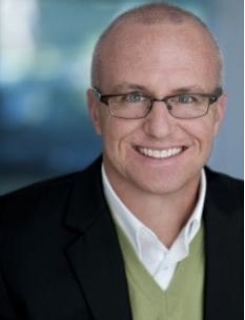BY NATASHA BARSOTTI — “I no longer support the ex-gay movement or efforts to attempt to change individuals — especially teens who already feel insecure and alienated. I feel great sorrow over the pain that has been caused when my words were misconstrued.” ![]()
John Paulk, former chairman of ex-gay organization Exodus and a founder of Focus on the Family’s Love Won Out conference, made the statement in an email to online news site Proud Queer in response to interview questions.
On April 24, Paulk also issued a public statement, apologizing for the harm he has caused.
“For the better part of ten years, I was an advocate and spokesman for what’s known as the ‘ex-gay movement’ where we declared that sexual orientation could be changed through a close-knit relationship with God, intensive therapy and strong determination. At the time, I truly believed that it would happen. And while many things in my life did change as a Christian, my sexual orientation did not.”
He says he knows “countless people were harmed by things I said and did in the past. I am truly, truly sorry for the pain I have caused . . . From the bottom of my heart I wish I could take back my words and actions that caused anger, depression, guilt and hopelessness.”
Paulk adds, “Please allow me to be clear: I do not believe that reparative therapy changes sexual orientation; in fact, it does great harm to many people.”
In the statement, Paulk also says his 20-year marriage to wife, Anne, who is also ex-gay, is ending. The couple co-authored the book Love Won Out: How God’s Love Helped Two People Leave Homosexuality and Find Each Other.
Wayne Besen, the founder and executive director of Truth Wins Out, a non-profit organization that challenges ex-gay ministries, says he commends Paulk for “finally being honest” in his initial emailed statement but says more needs to be done.
“John Paulk must work to atone for the damage he has done to LGBT families by taking a public role in renouncing and working against the harmful ‘ex-gay’ industry by embarking on a speaking tour to show that he truly has changed,” Besen says on his website. “He was instrumental in forming the Love Won Out “ex-gay” roadshow, which subjected countless LGBT youth and their families to misinformation, indoctrination and lies, and which destroyed many families in the process.”
Besen remembers photographing Paulk in September 2000 coming out of Mr P’s, a Washington, DC, gay bar. “Paulk admitted to his boss, James Dobson, on Focus on the Family’s radio program, that the evening he was photographed was actually his second appearance at the bar, which he referred to as ‘Satan’s Trap,’” Besen wrote on his website in December. Paulk later resigned from the board of Exodus International. But Besen notes that “the Religious Right continued to use the Paulks’ story as evidence that the ‘ex-gay’ life was a fairy tale rather than a nightmare.”
Another prominent ex-gay leader and Exodus International head, Alan Chambers, has also repeatedly distanced himself from the organization’s “change is possible” mantra, to the intense chagrin of those still devoted to the idea that all gay people need to rid themselves of homosexuality is a good dose of prayer and therapy. ![]()

“I would say the majority, meaning 99.9 percent of them, have not experienced a change in their orientation or have gotten to a place where they could say that they could never be tempted, or are not tempted in some way or experience some level of same-sex attraction,” Alan Chambers told a Gay Christian Network (GCN) conference in January last year.
“We’re not using change as a slogan anymore,” he said. “I’m very, very clear to say, we used ‘Change is possible’ for so many years, and it was used on me, and we used it, and the people who used it wanted it to mean something more than it did . . . but we don’t use that phrase anymore.”
“I am sorry that that is something we used,” he said when asked by a GCN conference panellist if Exodus had apologized for using the phrase over a 30-year period. “This is something we regret very much being ambiguous about, because I don’t think ambiguity with this subject is helpful, so that is something that we’re very, very sorry about.”
Apart from Chambers — and now, Paulk — other well-known proponents of conversion therapy have also apologized. In May last year, none other than retired psychiatrist Robert Spitzer retracted claims he’d made in a controversial 2001 study that “highly motivated” gays and lesbians could change their sexual orientation. “In retrospect, I have to admit I think the critiques are largely correct,” Spitzer said.
And in a statement of apology on the site Beyond Ex-Gay, the co-founder and former leader of Exodus, Michael Bussee, calls himself a proud gay man and says groups like Exodus will go out of business when people no longer feel that they must deny who they really are to attempt to become what they really are not.
In 2011, John Smid, a former director of ex-gay ministry Love in Action, came out as gay, also saying it’s impossible to change one’s sexual orientation.

 Why you can trust Xtra
Why you can trust Xtra


